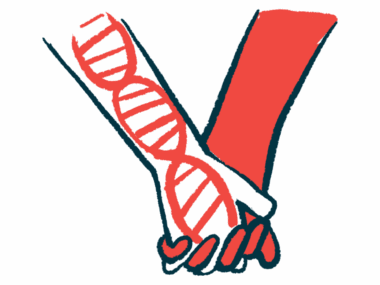Pivotal NGN-401 trial speeds toward dosing for people with Rett
Company targets year-end start date after discissions with FDA
Written by |

Neurogene expects dosing for a registrational clinical trial of its investigational gene therapy NGN-401 for people with Rett syndrome will start by the end 2025.
The U.S. Food and Drug Administration (FDA) agreed to key elements of the trial design over the summer, and Neurogene reports it has completed discussions with regulators about the study’s protocol.
As a registrational trial, the study — called Embolden — is intended to eventually support applications seeking NGN-401’s approval for treating Rett. Due to strong interest from the Rett community, Neurogene anticipates enrolling participants across 13 sites.
“In preparation for the Embolden registrational trial, we expanded our clinical trial footprint and have more than doubled our presence in the United States and plan to initiate dosing this quarter,” Rachel McMinn, PhD, founder and CEO for Neurogene, said in a company press release.
The company is looking to move NGN-401 toward regulatory approval as soon as possible.
FDA designations speed development
Neurogene’s interactions with the FDA have been facilitated by its participation in the agency’s START pilot program, which supports companies developing novel therapies for rare diseases.
NGN-401 also earned Regenerative Medicine Advanced Therapy (RMAT) designation in the U.S., a status that offers incentives to speed the therapy’s development, such as more frequent interactions with the FDA. The therapy holds various other statuses, also intended to expedite its development in both the U.S. and Europe.
“Being part of the FDA’s START pilot program and having RMAT designation, we are well-positioned to engage in early discussions with the FDA with the goal of an expedited [biologics license application] submission,” McMinn said.
Rett is a neurodevelopmental disorder that primarily affects girls and is typically caused by mutations in the MECP2 gene. This gene contains instructions to manufacture a protein of the same name, which helps regulate the activity of other genes. Reduced activity of the MeCP2 protein can impact various aspects of brain development, leading to delays in motor and cognitive skills, as well as other symptoms.
NGN-401 is a one-time gene therapy that provides a functional copy of MEPC2 to brain cells, allowing them to manufacture their own MeCP2 protein. A virus, engineered so as not to cause disease, carries this packaged genetic material to brain cells. The therapy is injected into fluid-filled cavities in the brain via a one-time infusion, called an intracerebroventricular (ICV) delivery.
MeCP2 activity requires tight regulation, because too little or too much can lead to severe neurological problems. NGN-401 uses Neurogene’s EXACT technology to regulate MECP2 activity in individual cells to achieve the right balance.
Early data supports ICV delivery route
Positive preclinical data supports the launch of the registrational trial, as do early findings from an ongoing Phase 1/2 trial (NCT05898620) that completed dosing this year.
Results from the first four girls in the trial who received the optimized dose showed NGN-401 spurred the achievement of new developmental milestones and gains in daily skills such as hand function, language and communication, and walking.
These four girls gained a total of 23 developmental milestones and skills, Neurogene reports.
The company also recently presented preclinical data in nonhuman primates, further establishing ICV delivery as the optimal mode of administration for NGN-401, consistent with previous studies.
When NGN-401 was given at a dose comparable to the Phase 1/2 study dose — and which will be used in Embolden — the data indicated ICV administration led to greater MECP2 gene activity in brain regions relevant to Rett compared with intrathecal lumbar delivery, where the treatment is injected into the spinal canal.
The two modes of administration led to similar distribution of the therapy in other organs throughout the body.
“Feedback from the Rett syndrome community and [key opinion leaders] reinforce that the decision to undergo gene therapy treatment is driven by a single critical factor: the potential for meaningful improvement,” McMinn said.
The CEO noted the recently presented preclinical data offers potential rationale for the strong gains observed in girls with Rett who received the ICV gene therapy to date.
Neurogene has indicated Embolden will include 20 participants with Rett, 3 and older, all of whom will receive the gene therapy via ICV delivery. The study’s main outcome measure will be a combined metric that considers whether gains are achieved on a list of 28 milestones and skills, as well as clinician-rated impressions of improvement.






